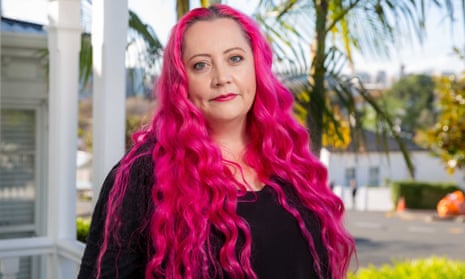Two of New Zealand’s most prominent Covid experts are taking legal action against their employer, the University of Auckland, over what they say is its failure to respond adequately to “harassment from a small but venomous sector of the public” that is becoming “more extreme”.
Siouxsie Wiles, an associate professor of medical science, and Shaun Hendy, a professor of physics, have filed separate complaints to the Employment Relations Authority, which last week ruled that they should proceed directly to the Employment Court due to the “high public interest” in their Covid commentary.
According to the ruling, the scientists say that as a result of their work they have “suffered vitriolic, unpleasant, and deeply personalised threats and harassment” via email, social media and video sharing platforms which has had a “detrimental impact” on their physical safety as well as their mental health.
The determination also noted that Wiles had also been the victim of doxxing – in which personal information is published about a person online – while Hendy has been physically confronted at his university office by a person who threatened to “see him soon”.
The pair say that they are expected to provide public commentary as part of their jobs and that it is “consistent with the principle of academic freedom” but that the university had “failed to take proactive action to protect them” from abuse and that it had “failed to take all reasonable steps to provide a safe working environment”.
Wiles, who is known for her trademark pink hair, was named New Zealander of the Year last year for her work on explaining the science behind the Covid-19 pandemic, including everything from how the virus spreads to how vaccines work.
Her collaborations with cartoonist Toby Morris for The Spinoff website were widely shared and resulted in work for the World Health Organization.
Hendy’s expertise in data-modelling has been credited with shaping the country’s pandemic response.
The Employment Relations Authority determination said the issue of their safety had first been raised in early 2020 shortly after the pandemic began but Wiles and Hendy claim the steps taken to protect them were “inadequate” and not consistent with the university’s contractual and statutory obligations and had resulted in “ongoing unjustified disadvantage”.
The scientists, who say they had been asked by both the university and the prime minister’s office to provide Covid commentary, claim that in a letter sent in August, the university urged them to cut back on their public comments and suggested they take paid leave in order to“minimise any social media comment”.
The university denies unjustifiably disadvantaging the scientists or breaching its statutory obligations and said they were neither expected or required to provide comment on Covid as part of their jobs, adding that much of their public commentary had been undertaken in a private capacity.
It also said that it had responded “appropriately” to Wiles’ and Hendy’s concerns and denied telling them to keep their public comments to a minimum. It said it had “merely advised the applicants that doing so is an option they may want to consider”.
The Employment Relations Authority said the matter should be resolved as quickly as possible by the court – rather than going through the authority’s sometimes lengthy and potentially more costly process – due to the high public interest in their commentary.
It also noted, “the authority is concerned about the uncontested evidence that the harassment is escalating and is expected to continue to do so. The issues associated with the vaccination of children aged 5-11 years of age is already a topic that has stirred up increased vitriol towards the applicants.”
